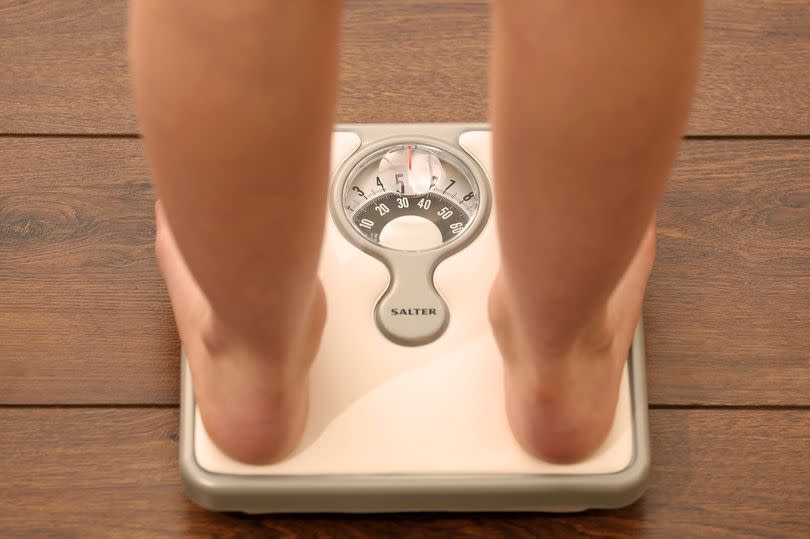How to check your BMI and if you are overweight, underweight or obese using NHS tool

The NHS has an online BMI calculator to help people check if they are of a healthy weight or not.
Body mass index is used to determine if your weight is appropriate for your height, and if you are overweight, underweight or obese. BMI may not always be the most accurate measure as there are other factors to take into account when assessing weight. However, it can be a useful guide for your health.
Your BMI is calculated by dividing your weight in kilograms by your height in metres squared. After getting your result, you may be asked to measure your waist.
This can help you understand if you are carrying too much weight around your tummy.
A BMI of 18.4 and below is classed as underweight
A BMI of 18.5 to 24.9 is classed as a healthy weight
A BMI of 25 to 29.9 is classed as overweight
A BMI of 30 or more is classed as obese
If you are overweight and physically inactive, you may develop cardiovascular (heart and blood circulation) disease, gallbladder disease, high blood pressure (hypertension), type 2 diabetes, osteoarthritis, certain types of cancer, such as colon and breast cancer, depression and other mental health disorders, reports Wales Online. If you are underweight you may be malnourished and develop a compromised immune function, respiratory disease, digestive diseases cancer or osteoporosis.
The NHS BMI calculator is here. It says: "BMI is just one way to measure health. It cannot tell you if you're carrying too much fat, or if you've got lots of muscle.
"It is advised that you measure your waist to find out if you're carrying too much fat around your tummy. You should try to keep your waist measurement to half your height." Waist circumference can be used to indicate health risk for chronic diseases.
For men:
94 cm or more – increased risk
102 cm or more – substantially increased risk
For women:
80 cm or more – increased risk
88 cm or more – substantially increased risk.
The NHS adds: "A higher BMI increases the chance of developing long-term conditions, such as type 2 diabetes and heart disease. The BMI calculation is just one measure of health. It cannot tell the difference between muscle and fat.
"For example, if you have a lot of muscle, you may be classed as overweight or obese despite having low body fat. This is why you may get a better idea of your overall health from measuring your waist."
You should not use a BMI tool to diagnose any symptoms. If you are worried about your weight, contact a pharmacist or GP surgery to discuss why your BMI might be too high or too low for your height. The NHS also warns that you should not use a BMI calculator if you are under 18 years old, pregnant, have been diagnosed with an eating disorder, or have a condition that affects your height.

 Yahoo News
Yahoo News 
